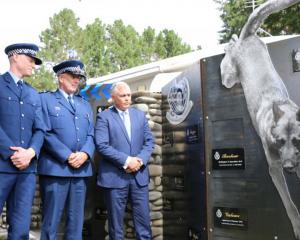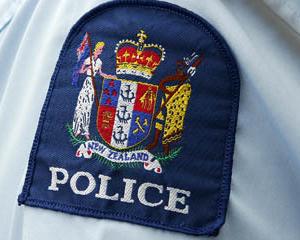Constable Jude Yeoman returned earlier his month from a three-week secondment as the police mentor with the Limited Service Volunteer scheme at the Burnham Military camp, near Christchurch.
Most recently a member of the city's youth crime unit, he is presently seconded to the inquiries team at the Dunedin Central police station.
He believed the service course was a good initiative and should be supported.
The course is over six weeks and run by the joint defence force services of army, navy and air force, with a police attachment.
About 120 volunteer trainees, referred by Work and Income, take part in six courses a year.
The courses were promoted by the Government and often referred to as "boot camps", but they were actually much more than that, he said.
"First thing that happens to them is they all get their hair shaved off, so everyone looks the same. And they are all clean. That's just such a great start."
In addition to military basic training, participants took part in job interview workshops, Industry Training Organisation workshops, confidence-building exercises and learned public speaking, manners and respect, he said.
Activities included walking on high ropes, whitewater rafting, bushcraft and abseiling, as well as drug and alcohol education, and financial and career advice - areas in which they often lacked guidance.
He understood versions of the course had been operating at Burnham for about 15 years, but it had recently been upgraded to include police and civilian input, and extended to two other military bases in the North Island.
Many on the course had a history with the courts and police, or were on bail or assisting police with inquiries, Const Yeoman said.
While the military ran it "very professionally", a social worker and psychologist also worked on each course.
The idea of having a police officer present was to cover any issues which might arise, and to build relationships in the hope participants would leave with a better understanding of police work, he said.
Const Yeoman felt police involvement worked.
"I realised we were forming relationships when about halfway through they stop asking me the same stupid questions - like why they were always getting pink-stickered - and we could have normal conversations."
The course provided some of the structure and discipline many of the participants needed, he said.
And the results had been positive, with about 70% managing to find employment and getting off the benefit within two months of leaving the course.
About 20% went on to join the military, though many participants had volunteered because they wanted to see what the military was like, he said.
He said thousands of New Zealand's most at-risk young people would be passing through future services courses.
The scale of the initiative was unprecedented and the potential benefits were considerable.
"It is imperative that people do not underestimate the potential benefits that will result from building positive relationships [with course participants]."
A crucial factor in its continued success would be how well participants were followed up after the course, he said.








